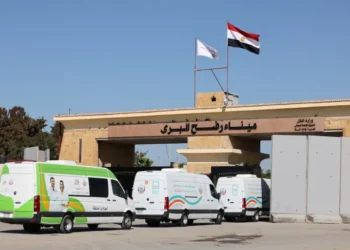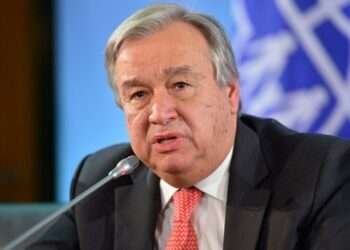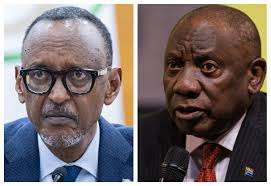Iraq has begun a nationwide census.
This is the country’s first attempt to gather demographic data since 1987 when Saddam Hussein was still in power.
The Ministry of Interior announced a two-day curfew for the extensive operation, which will see 120,000 researchers gathering data from households in all 18 of the country’s governorates on Wednesday, November 20, 2024 and Thursday, November 21, 2024.
Ministry of Planning Spokesman, Abdul-Zahra al-Hindawi said that the census, carried out with the United Nations Population Fund (UNFPA), would reveal “the reality of Iraq in its smallest details”, enabling authorities to pinpoint gaps in health, education and housing provision.
Iraq has been keen to conduct the census for budgetary reasons.
Prime Minister Mohammed Shia Al Sudani asserted that the census was important for “development and planning steps in all sectors that contribute to the advancement and progress of Iraq”, where electricity is scarce and infrastructure largely in disrepair.
Iraq has spent much of the past few decades devastated by conflict and sanctions, the 2003 United States-led invasion that toppled Saddam Hussein followed by sectarian struggles and the emergence of the ISIL (ISIS) group.
The act of counting the population could prove contentious, with the census expected to have profound implications for Iraq’s resource distribution, budget allocations and development planning.
In particular, it has reignited tensions between Baghdad and Iraqi Kurdistan, the latter fearing any documented decline in the Kurdish population will reduce the group’s political influence and economic entitlements in the country’s sectarian power-sharing system.
The count in territories such as Kirkuk, Diyala and Mosul – where control is disputed between the central government in Baghdad and the semi-autonomous Kurdish regional government in the north – has drawn intense scrutiny.
Ali Arian Saleh, the Executive Director of the census at the Planning Ministry disclosed that researchers from all ethnic groups – Kurds, Arabs, Turkmen, and Christians – would conduct the census in disputed areas to “ensure fairness.”
Saleh said that the Kurdish region’s share of the national budget – currently 12 percent – is based on an estimated population of six million. He estimated Iraq’s total population to be 44.5 million.
The census, which will gather information from households on issues like health, education and employment, includes religion but does not differentiate between sects, such as Sunni and Shia Muslims. Unlike previous counts, it excludes ethnicity.
Demographics are likely to have shifted with the exile of hundreds of thousands of Christians, and also of tens of thousands of Yazidi families who were displaced from Sinjar by atrocities committed by ISIL.
The last nationwide census in Iraq was held in 1987. Another one held in 1997 excluded the three northern provinces that make up the semi-autonomous Kurdistan region.
Change In Parliamentary Representation Foreseen
Commenting on the census, Hamzeh Hadad, a visiting fellow at the European Council on Foreign Relations (ECFR), noted, “More generally across the country, parliamentary representation will change.”
He noted that with one Member of Parliament allocated by the constitution per 100,000 Iraqis, “having an official census will mean the numbers will have to be adjusted” based on the new demographic breakdown.
“There are some crucial details in this census that might be missing to appease all sides to finally allow it to take place.”
Hamzeh Hadad
Previous censuses were cancelled mainly because of tensions over disputed territories between the Kurdish, Arab, and Turkoman communities in the northern governorates of Kirkuk and Nineveh.
Hadad mentioned that There is still “a lot of sensitivity over disputed territories.”
He added that it’s not just the Arabisation policy under Saddam Hussein but the reversal of it and Kurdification of disputed territories post-2003. “So it’s not one-sided,” he said.
READ ALSO: Chidimma Adetshina Announces Break From Beauty Contests





















